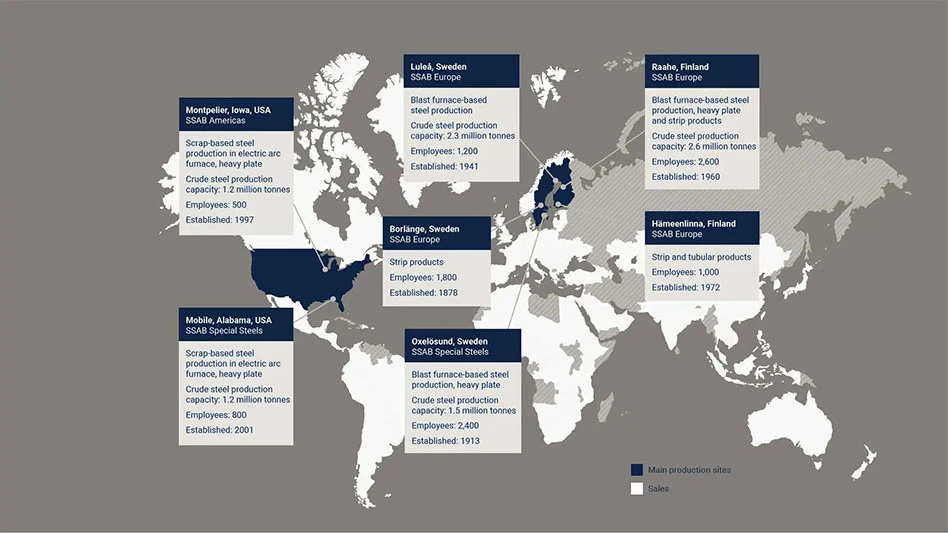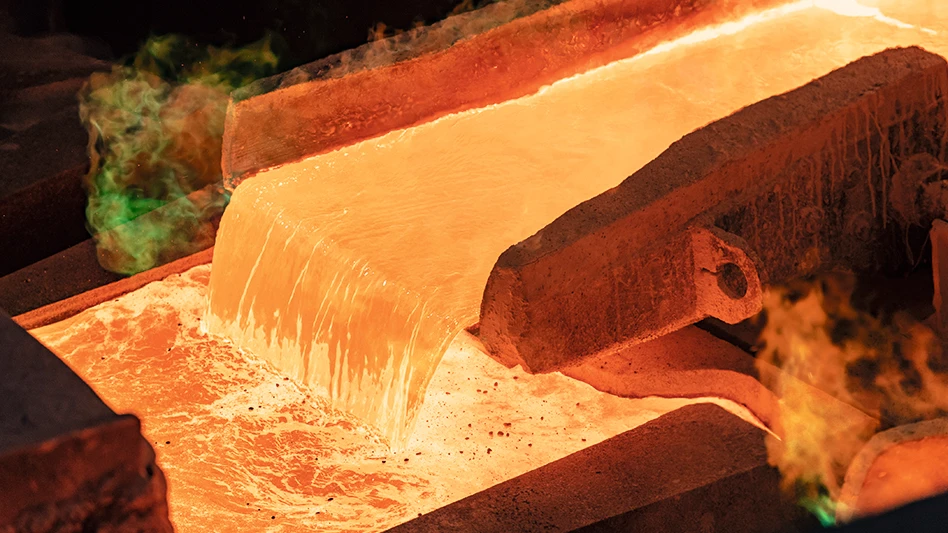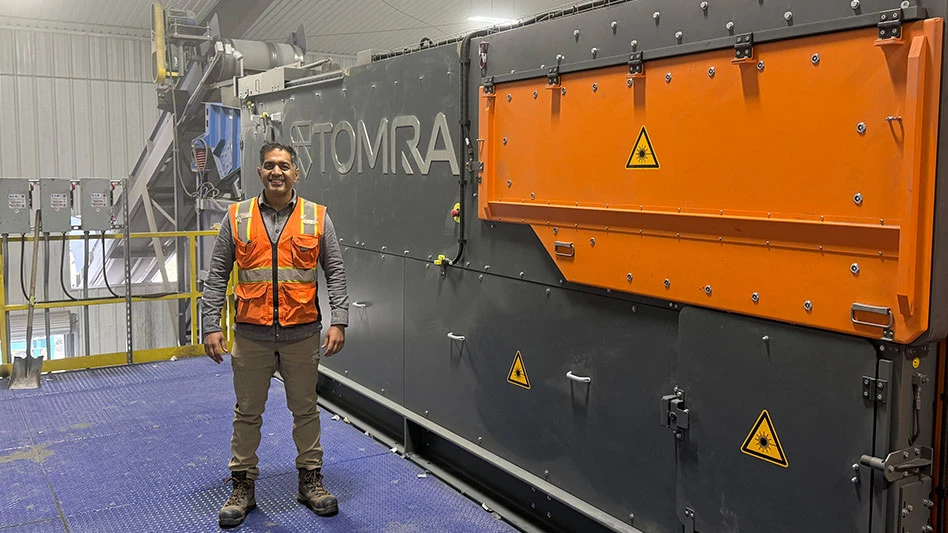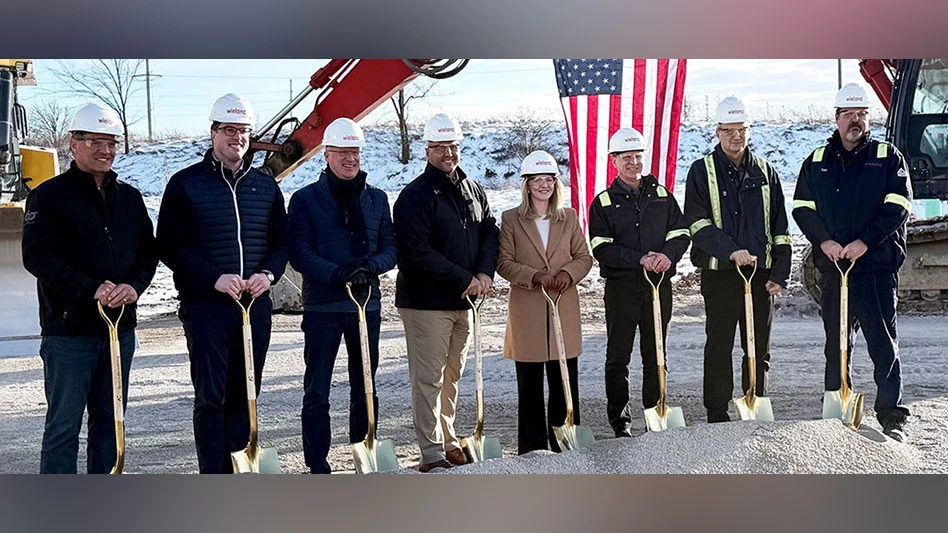
Photo by DeAnne Toto
As North American trade policies evolve, owners and operators within the recycled materials industry are grappling with wide-spanning uncertainty arising from the United States’ still-shifting tariff policies.
During the Navigating North American Trade & Beyond: The Future of Recycled Materials with Tariffs and a Shifting Political Landscape session at the 2025 Recycled Materials Association (ReMA) Convention & Exposition in San Diego, former U.S. Department of Commerce Assistant Secretary for Industry and Analysis at the International Trade Administration Nazak Nikakhtar—who also served as the under secretary for industry and security at Commerce’s Bureau of Industry and Security—spoke candidly with ReMA Executive Committee Member Christopher Bedell about how tariffs, political dynamics and national security priorities are affecting the recycled materials industry.
The administration’s trade philosophy
“A lot is happening right now. Every minute of every day, there seems to be news breaking that the Trump administration is going this way or that way [in terms of its trade policy],” Nikakhtar said. “But I think it’s really helpful to understand all of this [in terms of] the objectives of this president and his administration.
“[W]ith respect to all of our trading partners, he doesn’t really look at who is necessarily worse than the others,” she continued, noting that, instead, President Trump feels that the trading practices of all the U.S.’ trading partners have undermined our competitiveness.
“Fair trade policies will not only help bring back American manufacturing,” she said, “it will also help bring back jobs. It’s not protectionism to push for fair trade to [strengthen our industries], onshore manufacturing, bring back jobs and [improve] Americans’ economic strength.”
Why recycling matters in the new trade agenda
Bedell, who recently retired as general manager of corporate legal affairs at Nucor Corp. and The David J. Joseph Co., asked Nikakhtar whether she believed the current administration understands how the recycling industry operates in conjunction with the manufacturing sector.
Nikakhtar acknowledged that while the administration does not yet have a strong grasp of the U.S. recycling industry, efforts are underway to educate policymakers.
She added that while some of the U.S.’ recently announced trade policies and tariffs will have implications for the industry, the Trump administration is taking steps to insulate recyclers from retaliatory measures.
For example, according to news reports, the administration is evaluating the benefits of establishing tariff-free corridors for essential raw materials trade with countries such as Canada and Mexico. Although formal agreements have yet to be finalized, if approved, the corridors would protect raw material flows from disruption and retaliatory trade actions.
Copper’s role in national security
The Section 232 investigation into U.S. copper imports, which was announced Feb. 25, also was discussed. This latest 232 investigative action was initiated by executive order and directs the Secretary of Commerce to determine whether copper imports threaten national security.
Bedell noted that what’s most unique about this action is that it’s not just delving into the potential national security implications of copper imports, but it’s also exploring whether export restrictions should be enacted.
“We haven’t seen that with 232 before,” he said.
Stakeholders within the industry have been vocal in their opposition to export restrictions as they could sever access to major buyers and lead to an oversupply of copper in the domestic market, reducing the value of copper scrap, leading to significant financial losses for small and midsized exporters.
Bedell further noted that several copper recyclers and traders formally shared their concerns with the Department of Commerce and asked whether the agency is beginning to gain a clearer understanding of how the industry operates.
“I think the copper investigation began because some people in the administration had a limited understanding of the issue,” Nikakhtar explained, adding that while officials believed they had crafted a solution to address a problem, for some outside the administration, that solution “doesn’t seem to make sense.”
The Copper 232 investigation is scheduled to conclude later this year, with a final report set to be submitted to the president by Nov. 22.
Presenting solutions
Nikakhtar concluded by saying she believes many good people are in elected office who want to sit with the recycled materials industry to try to figure out solutions.
“Engage with [government officials] and talk about solutions and options that are workable,” she suggested to those in attendance.
If industry members can meet with elected officials and answer their questions, she continued, “you might be surprised to see how many solutions [are available] if there is collaboration and dialogue.”
Nikakhtar also underscored the importance of speaking with non-cabinet-level officials to get their feedback before approaching cabinet members.
“Do your due diligence,” she said. “You might not be able to get a second bite of the apple, so diligence is important.”
Latest from Recycling Today
- Eriez expands European sales network
- Gränges increases sales volume in 2025
- Aduro selects Netherlands as site for industrial scale-up facility
- Nasco-Op declares dividend
- Cyclic Materials announces plans for South Carolina campus
- WM reports revenue, earnings growth in Q4 and full-year 2025
- Solarcycle’s Cedartown, Georgia, recycling facility opens
- Stadler equips Spanish MRF





